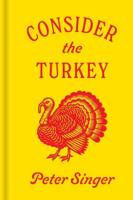Publisher's Synopsis
The Palgrave Handbook of the Philosophy of Humour gathers the best scholars in this now well-established field in order to fill a significant lacuna: to provide an accurate explanation of philosophers' attitudes toward humour as an umbrella term, both historically and thematically. To that purpose, it addresses not only humour, but also laughter and the comical, as well as related terms, such as smiling, wit, jokes, caricature, irony and stand-up comedy.
The historic part of the Handbook presents the main philosophers and the major philosophic schools which have taken humour seriously, clarifying the ways in which it was interpreted through various periods in Western history, and engaging with additional spiritual traditions and diverse cultures in which humour was significant.
The thematic part is further divided into three sections. Section 1 (Humour and Related Terms) disambiguates the main notions which are associated with humour as an umbrella term, and emphasizes their role in philosophy. Section 2 (Understanding Humour) explores how humour has been understood, approaching it through various lenses. Finally, Section 3 (Humour, Ethics, and the Human Condition) addresses the main questions in the ethics of humour, such as its capacity to offend and its potential to be virtuous, and the strong ties between humour and the human predicament.
This Handbook is essential reading for all scholars, researchers, and advanced students of the philosophy of humour and of humour studies. It is also of interest to scholars in related fields including philosophical psychology, ethics, and the history of philosophy.









